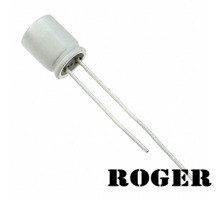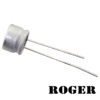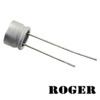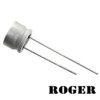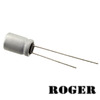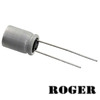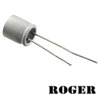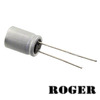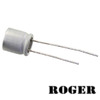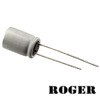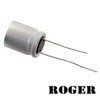
PLS0G271MCO8
- Artikelnummer:
- PLS0G271MCO8
- Hersteller:
- Nichicon
- Beschreibung:
- CAP ALUM POLY 270UF 20% 4V T/H
- RoHS-Status:
- Bleifrei / RoHS-konform
- Menge auf Lager:
- 90253 Pieces
- Lieferzeit:
- 1-2 days (We have stocks to ship now)
- Produktionszeit:
- 4-8 weeks
- Datenblatt:
- 1.PLS0G271MCO8.pdf2.PLS0G271MCO8.pdf
Einführung
We can supply PLS0G271MCO8, use the request quote form to request PLS0G271MCO8 pirce and lead time.XXX.com a professional electronic components distributor. With 3+ Million line items of available electronic components can ship in short lead-time, over 250 thousand part numbers of electronic components in stock for immediately delivery, which may include part number PLS0G271MCO8.The price and lead time for PLS0G271MCO8 depending on the quantity required, availability and warehouse location.Contact us today and our sales representative will provide you price and delivery on Part# PLS0G271MCO8.We look forward to working with you to establish long-term relations of cooperation
Spezifikation
| Interne Teilenummer | RO-PLS0G271MCO8 |
|---|---|
| Bedingung | Original New |
| Herkunftsland | Contact us |
| Top-Markierung | email us |
| Ersatz | See datasheet |
| Spannung - Nennwert: | 4V |
| Art: | Polymer |
| Toleranz: | ±20% |
| Oberflächenmontage Land Größe: | - |
| Größe / Dimension: | 0.248" Dia (6.30mm) |
| Serie: | PLS |
| Ripple Current @ High Frequency: | 4.8A @ 100kHz |
| Bewertungen: | - |
| Verpackung: | Bulk |
| Verpackung / Gehäuse: | Radial, Can |
| Andere Namen: | 493-16564 PLS0G271MCO8-ND |
| Betriebstemperatur: | -55°C ~ 105°C |
| Befestigungsart: | Through Hole |
| Feuchtigkeitsempfindlichkeitsniveau (MSL): | 1 (Unlimited) |
| Hersteller Standard Vorlaufzeit: | 17 Weeks |
| Lebensdauer @ Temp.: | 5000 Hrs @ 105°C |
| Leiter-Abstand: | 0.098" (2.50mm) |
| Bleifreier Status / RoHS-Status: | Lead free / RoHS Compliant |
| Höhe - eingesteckt (max): | 0.354" (9.00mm) |
| ESR (Equivalent Series Resistance): | 8 mOhm |
| detaillierte Beschreibung: | 270µF 4V Aluminum Polymer Capacitor Radial, Can 8 mOhm 5000 Hrs @ 105°C |
| Kapazität: | 270µF |
| Anwendungen: | General Purpose |
| Email: | [email protected] |
läst Nachrichten
- Kondensator -Arbeitsprinzip
- Renesas ist der erste, der einen universellen 32-Bit-Risc-V-MCU mit dem selbst entwickelten CPU-Kernel startet
- Auf Anmeis niedrigerem Bildssensor gegenüber dem modernen visuellen System gegenüber
- ADI kooperiert mit der BMW Group, um die führende 10 -MB -Auto -Ethernet -Technologie der Branche zu starten und ein neues Kapitel in Software Definition Automobiles zu eröffnen
- Vishay startet das Knopf -Potentiometer, vereinfachte das Design der Industrie- und Audioanwendungsanwendungen und optimieren die Kosten
- Toshiba startet SmartMCD -Gate -Treiber IC mit eingebettetem Mikrocontroller
- ADI -Bereitstellung Sambanova -Kit, die die Produktionsformel AI fördert, um einen Durchbruch auf Unternehmensebene zu erzielen
- Honeywell und Adi haben sich den Händen angeschlossen, um die Innovation und den Wandel der Bauenautomatisierung zu fördern
- Maxim kündigte den Start an
- Maxim startet einen Auto-DC-DC-Konverter MAX16984, ein Auto mit integrierten USB-Ladeumzähern
- Renesas Electronics startet den ersten programmierbaren elektrischen Treiber der Branche IC
- Renesas startete die erste Generation von 32-Bit-RISC-V-CPU-Kernel
